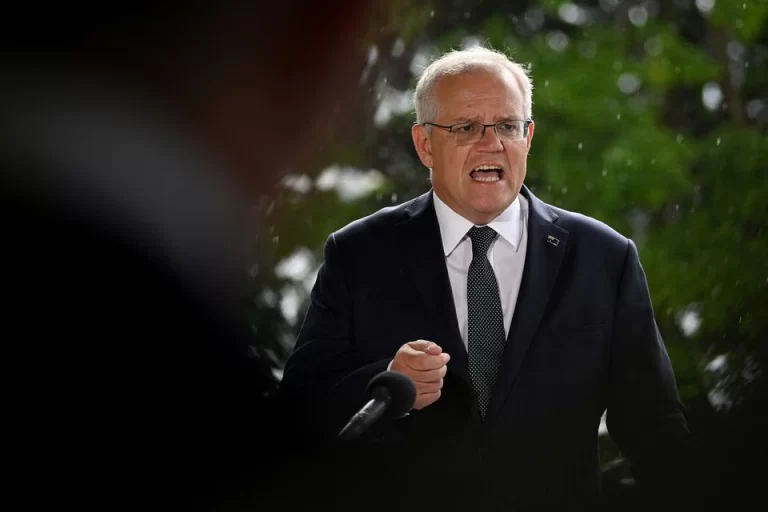
SYDNEY, (Reuters) – Trailing in the polls, Australia’s Liberal National government on Wednesday sought to sell A$8.6 billion ($6.46 billion) of budget giveaways as necessary to meet a cost of living emergency and not a transparent attempt to buy votes.
Prime Minster Scott Morrison, facing a tough election in May, led the marketing blitz with a barrage of media interviews saying relief was needed to meet rising fuel prices.”It’s responsible because it’s targeted and it’s for a temporary period as these cost of living impacts are real and they’re there right now,” Morrison told one radio interviewer.
Other countries including New Zealand, Japan and South Korea have announced measures to counter soaring energy prices in the wake of the war in Ukraine.
Some were sceptical, however, with one interviewer asking: “with this Budget, are you addressing the cost of living or is it just the cost of winning?”
Opinion polls show the opposition Labor Party ahead by anywhere from 4 to 16 points, while bookmakers on Wednesday announced odds had just widened sharply against Morrison returning to power.
The government’s careful messaging campaign was also blindsided by claims from one of Morrison’s own Liberal senators that he was a “bully” with “no moral compass”.
Morrison rejected the accusation from Concetta Fierravanti-Wells, saying she was “disappointed” at losing selection for her seat.
Also vying for media attention was fresh flooding on the east coast in areas already washed out by the wettest March on records.
Television coverage of cars floating down main streets sucked up much of the air time Morrison had hoped would be devoted to his tax cuts and upgraded economic forecasts.
The economy has recovered faster than anyone expected last year, with unemployment hitting 13-year lows of 4% and projected to soon reach levels last seen in the 1970s at 3.75%.
Wage growth was also forecast to accelerate but not by enough to outpace inflation, meaning real incomes were set the shrink this year.
The strong labour market combined with sky-high prices from many of Australia’s resource exports has been a huge boon for tax receipts and allowed the government to project much smaller deficits than predicted just a few months ago.
Yet the budget is still seen in the red to the tune of A$79.8 billion for the year to end June, with another A$78.0 billion pencilled in for 2022/23.
For now, all this borrowing is considered manageable by analysts as debt is still low relative to the rest of the developed world.
Ratings agency Fitch said the budget did not immediately threaten Australia’s coveted triple-A credit rating, but did sound a warning for the long term.
“It does leave fiscal metrics and debt stabilization vulnerable to a potential underperformance in economic growth, especially as the budget does not expect a return to fiscal balance in the next 10 years,” said Jeremy Zook, a director of sovereign ratings at Fitch.






